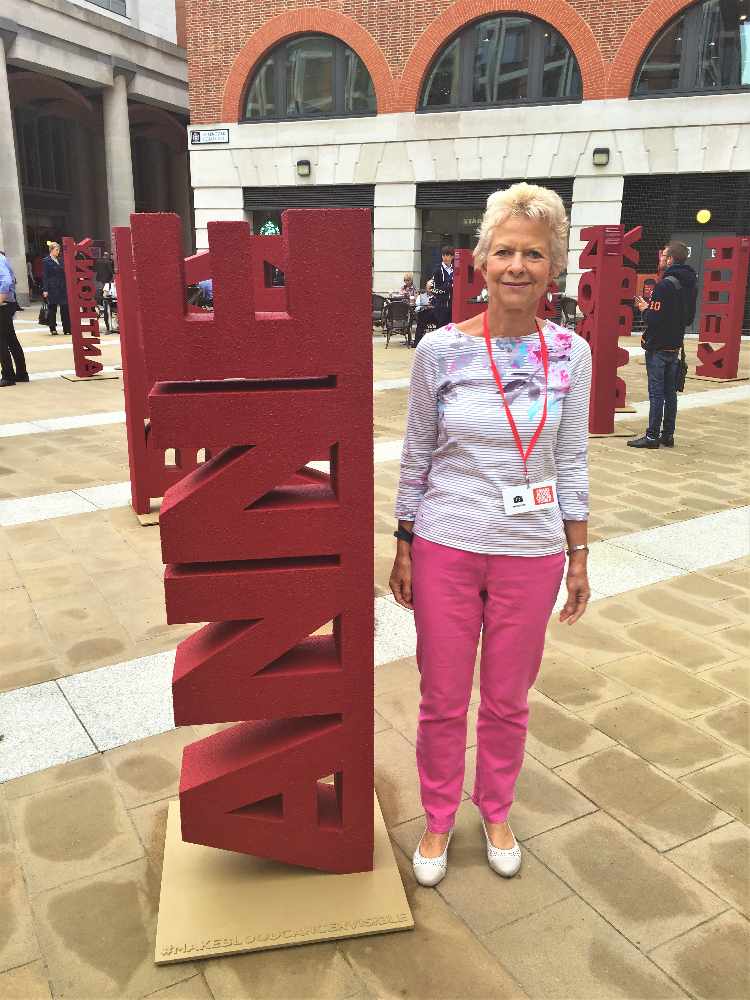
Anne Fleming, 68, from Cambridge is one of 14 myeloma patients to feature in a large art installation in London’s Paternoster Square. The “Make Blood Cancer Visible” campaign is part of Blood Cancer Awareness Month and aims to shed a light on different types of blood cancers.
Myeloma UK nominated Anne, alongside 13 other patients to take part in the installation. The charity is one of nine blood cancer charities supporting the installation which features 104 three dimensional letterform sculptures representing the number of people diagnosed with a blood cancer every day in the UK. Each sculpture has the patients’ story on the side.
Anne was diagnosed with myeloma in 2004 after collapsing with six crushed vertebrae. It took nine months for a myeloma diagnosis to come through. Despite relapsing twice and having two stem cell transplants, Anne lives her life to the fullest.
She said that she is delighted to take part in the art installation and thinks that it will raise more awareness of what myeloma is, “The one thing I wish people knew more about is how difficult a diagnosis of myeloma is and to be more aware of the symptoms.”
Myeloma UK is the only charity in the UK dealing exclusively with myeloma, an incurable blood cancer originating in the bone marrow.
The charity’s CEO Rosemarie Finely attended the launch of the installation. She said, “Myeloma is the second most common form of blood cancer and yet, often when we speak to newly diagnosed patients, they’ve never heard of it before. This month, we’ll be focused on raising awareness of myeloma, its signs and symptoms, and the importance of early diagnosis, to ensure that myeloma patients are living longer and with the best possible quality of life.”
Every year, around 5,500 new cases of myeloma are diagnosed in the UK – that’s 15 people every day. Myeloma makes up 2% off all cancer diagnosis in the UK. It is complex, with non-specific symptoms which makes diagnosis difficult. Increasing awareness of myeloma and its signs and symptoms can lead to early and accurate diagnosis, to improve quality of life for all patients.
The installation will be on display until 30th September 2017. To find out more about myeloma visit: www.myeloma.org.uk.


 Fears Cambridge market could shrink following revamp
Fears Cambridge market could shrink following revamp
 Woman found dead in Little Shelford
Woman found dead in Little Shelford
 Record knife amnesty results for Cambridgeshire
Record knife amnesty results for Cambridgeshire
 Cambridge crowned busiest station in the East
Cambridge crowned busiest station in the East


